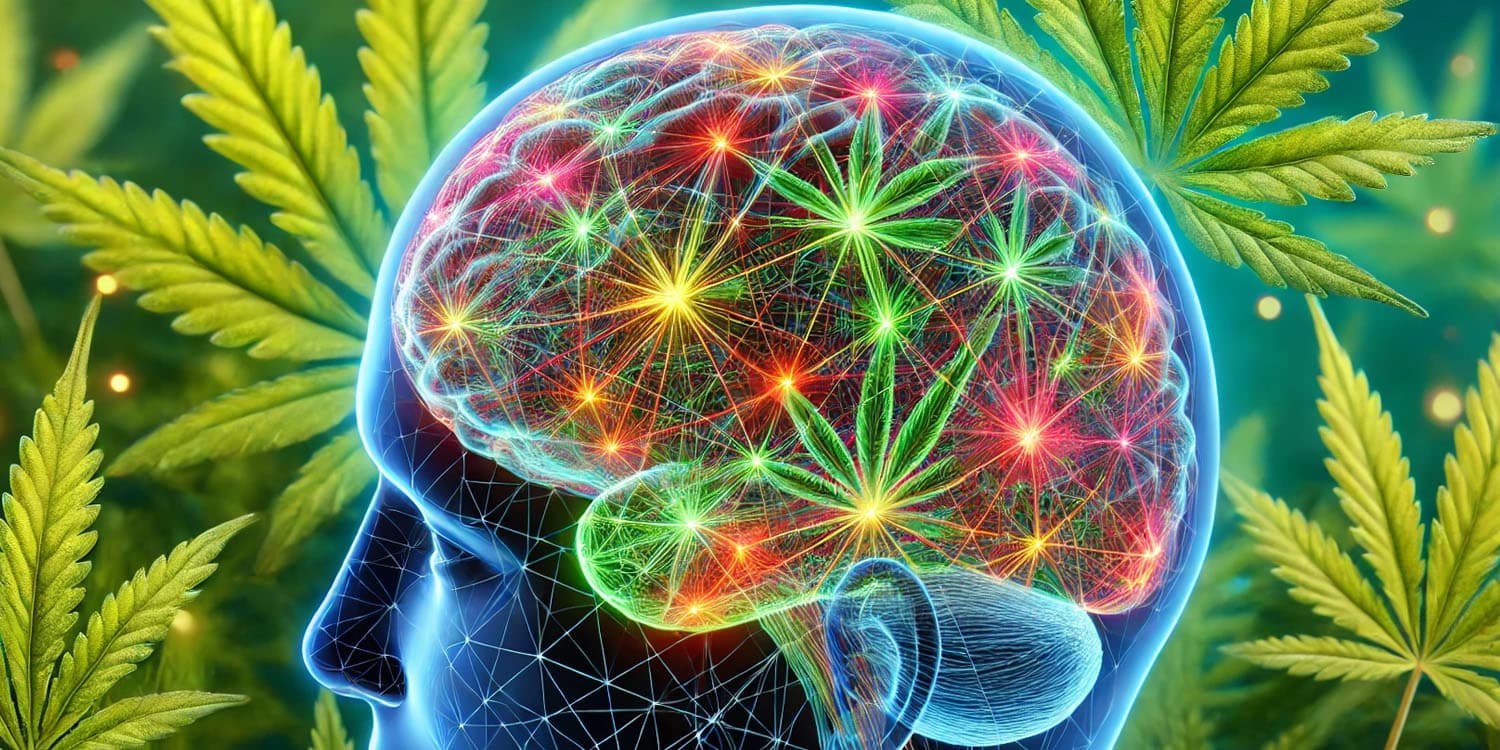In a recent study published in the journal Neuropsychopharmacology, researchers have found that cannabidiol (CBD) does not mitigate the disruptive effects of delta-9-tetrahydrocannabinol (THC) on brain connectivity. In fact, the study suggests that CBD might even exacerbate these effects in some cases. This challenges the commonly held belief that CBD can counterbalance the psychoactive impact of THC in cannabis.
The research was motivated by the growing use of cannabis among adolescents and young adults, a period characterized by significant brain development. Previous studies indicated that chronic cannabis use during adolescence could lead to changes in brain connectivity and cognitive impairments. However, there was a lack of detailed research on the acute effects of cannabis in this age group, especially considering the different compositions of cannabis with varying levels of THC and CBD.
THC is the main psychoactive component, responsible for the euphoric “high” and cognitive alterations associated with cannabis use. CBD, on the other hand, is non-psychoactive and has been suggested to have potential therapeutic properties, such as reducing anxiety and possessing anti-inflammatory effects. While THC binds directly to cannabinoid receptors in the brain, influencing mood, perception, and cognition, CBD interacts more subtly with these receptors and can modulate the effects of THC.
The study was conducted as part of the larger “CannTeen” project and involved 48 semi-regular cannabis users. The participants were evenly divided into two groups: 24 adolescents with a mean age of 17.2 years and 24 adults with a mean age of 27.8 years. The selection criteria ensured that participants had used cannabis between 0.5 and 3 days per week over the past three months. The researchers aimed to match the cannabis use frequency between the adolescent and adult groups.
Participants were recruited from the Greater London area through various means, including school assemblies, physical posters, flyers, and online advertisements. Before each of the three sessions, participants were screened for recent drug and alcohol use through saliva and breathalyser tests to ensure no recent consumption.
The study used a double-blind, placebo-controlled design. Each participant underwent three drug administration sessions where they inhaled one of three types of cannabis: placebo (0 mg THC, 0 mg CBD), THC-only (8 mg THC for a 75 kg person, zero CBD), or THC + CBD (8 mg THC and 24 mg CBD for a 75 kg person).
The cannabis was administered using a Volcano Medic Vaporizer to ensure precise dosing and controlled administration. The participants then underwent a resting-state functional magnetic resonance imaging (fMRI) scan approximately 50 minutes after inhalation to capture the peak effects of the drugs.
Resting-state fMRI is a technique used to measure and map brain activity by detecting changes associated with blood flow. This method involves scanning the brain while the participant is not performing any specific tasks, allowing researchers to observe the natural fluctuations in brain activity and connectivity between different regions.
The study’s findings revealed significant disruptions in brain connectivity across several key networks after cannabis administration. These networks include the executive control network (ECN), salience network, hippocampal network, and limbic striatal network.
Specifically, the ECN, responsible for higher-order cognitive functions like decision-making and cognitive control, showed reduced connectivity under the influence of both THC and THC + CBD. The salience network, which helps in detecting and filtering important stimuli, also displayed diminished connectivity.
The hippocampal network, essential for memory formation and retrieval, was similarly affected. Furthermore, the limbic striatal network, involved in reward processing and emotion regulation, experienced connectivity reductions.
One of the most striking findings was that the addition of CBD did not mitigate the disruptive effects of THC on brain connectivity. In fact, in some cases, the presence of CBD led to even greater reductions in connectivity than THC alone, particularly in the ECN and salience networks. This challenges the widely held belief that CBD can counterbalance the psychoactive effects of THC.
“This study has shown that acute cannabis administration reduces connectivity within resting-state networks and between brain regions associated with cognition and emotional processing,” the researchers concluded. “Contrary to some previous work, CBD does not appear to have any attenuating effects when combined with THC, and in some networks, the addition of CBD further reduced network connectivity. This may be due to the metabolic competition of CBD and THC leading to higher plasma THC when CBD is also present.”
“There were no interaction effects between age group and drug treatments suggesting that adolescents do not show differential effects of cannabis compared to adults. These results therefore suggest that cannabis containing high levels of CBD may not necessarily be safer for users and that adolescent cannabis users appear to be at no greater risk than young adults with acute cannabis use, however further research is required to assess the long-term effects of cannabis, particularly past young adulthood.”
The study, “Acute effects of different types of cannabis on young adult and adolescent resting-state brain networks,” was authored by Natalie Ertl, Tom P. Freeman, Claire Mokrysz, Shelan Ofori, Anna Borissova, Kat Petrilli, H. Valerie Curran, Will Lawn, and Matthew B. Wall.




